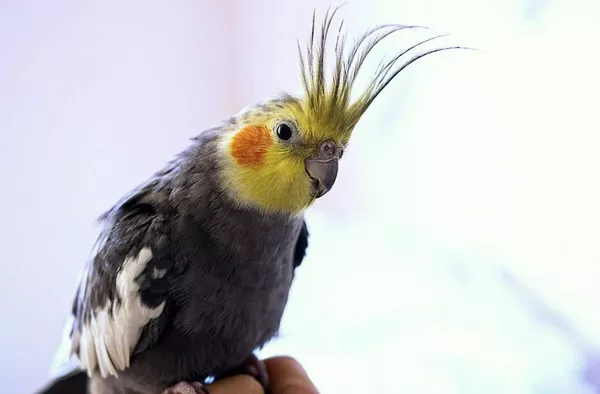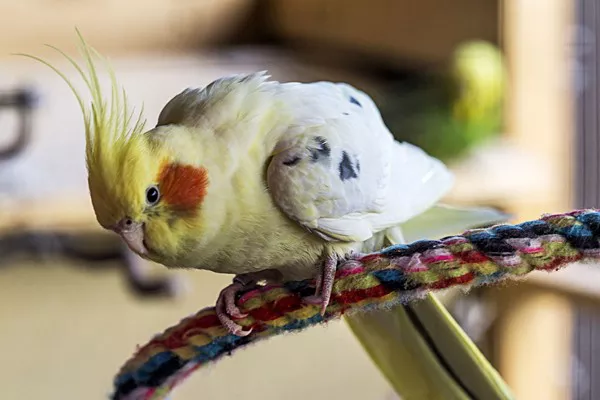Betta fish, also known as Siamese fighting fish, are popular aquarium pets known for their vibrant colors and unique personalities. Among the various species of bettas, the females tend to have slightly different care needs compared to their male counterparts. One common question that many betta owners ask is whether female bettas need a filter in their tank. This is an important question, as the quality of water in a betta’s environment significantly impacts its health and well-being.
In this article, we will delve into the factors that influence whether female bettas need a filter in their aquarium. We will also explore the benefits of using a filter, alternative filtration options, and general tank care tips that help ensure a happy, healthy betta. Whether you’re a new betta owner or an experienced aquarist, this guide will help you make informed decisions about how to properly care for your female betta.
The Basics of Betta Fish Care
Before we answer the filter question specifically, it’s important to understand some key aspects of betta fish care. Betta fish are native to Southeast Asia, where they live in shallow, slow-moving waters such as rice paddies, ponds, and streams. In their natural habitats, bettas are adapted to warm water temperatures, low to moderate flow, and plenty of hiding places.
Bettas are labyrinth fish, meaning they have a specialized organ called a labyrinth that allows them to breathe oxygen from the air. This adaptation enables them to survive in environments with lower oxygen levels, making them somewhat more resilient to poor water conditions than other fish species. However, despite their hardiness, bettas still require a clean, stable environment to thrive.
Gender Differences in Bettas
Male and female bettas share many similar care requirements, but there are some important differences between them. Male bettas are known for their strikingly beautiful long fins and vivid colors, which they use to display aggression and compete for territory. They are also more likely to be territorial and aggressive towards other males, which is why they are typically housed alone in a tank.
Female bettas, on the other hand, are typically smaller and have shorter fins. While they can also be territorial, they are generally less aggressive than males, and in certain conditions, they can even live together in a sorority. A betta sorority is a tank with multiple female bettas, but it requires careful monitoring and ample space to avoid conflicts. Additionally, female bettas may display more subdued colors, but they can still be beautiful, with some exhibiting vibrant hues depending on their genetics.
The Importance of Water Quality for Bettas
Regardless of gender, one of the most crucial factors for a betta’s health is the quality of the water in its tank. Betta fish are sensitive to changes in water temperature, pH levels, and chemical parameters such as ammonia, nitrite, and nitrate levels. Water quality directly affects their well-being, so keeping the tank clean and maintaining stable water conditions is vital.
In a natural environment, bettas are accustomed to calm waters, and their delicate gill structure is not designed for turbulent, fast-moving currents. This means that a filter must be chosen carefully to avoid creating strong water flow that can stress the betta. The water should be kept clean, but not at the expense of comfort.
Do Female Bettas Need a Filter?
The simple answer is yes, female bettas do need a filter. However, the need for a filter is not exclusive to female bettas – all bettas, whether male or female, benefit from having clean, filtered water in their tanks. But there are nuances to consider when it comes to the type of filter used and how it affects female bettas specifically.
Why Female Bettas Benefit from a Filter
There are several reasons why a filter is essential in a betta tank:
Maintains Water Quality: A filter helps remove waste, uneaten food, and other contaminants that can accumulate in the water. This is especially important because bettas, like most fish, excrete waste that can break down into harmful substances such as ammonia. In an unfiltered tank, these substances can build up quickly and lead to toxic water conditions that can stress or even kill the fish.
Prevents the Build-up of Harmful Chemicals: Without a filter, the biological filtration process – which involves beneficial bacteria breaking down harmful substances in the water – can be compromised. A filter helps support this process by continuously circulating water, providing more surface area for bacteria to colonize.
Improves Oxygenation: Filters help circulate the water, which can improve oxygen exchange at the water’s surface. While bettas can breathe air through their labyrinth organ, they still need adequate oxygen levels in the water to support their gill function. A filter ensures that the water stays well-oxygenated and prevents stagnation.
Reduces Maintenance Effort: A filter reduces the frequency and effort of manual water changes. While water changes are still necessary, a filter significantly reduces the amount of waste that builds up, meaning you can space out your water changes and make them less frequent.
Considerations for Choosing a Filter for Female Bettas
While female bettas benefit from a filter, it’s essential to choose the right type of filter. Bettas are not well-suited to high-flow filters because they are used to calm waters in the wild. A strong current can stress them out, prevent them from swimming comfortably, and even cause injury to their fins. Here are some factors to consider when selecting a filter for a female betta:
Flow Rate: The flow rate of the filter should be low to moderate. A filter with a flow rate that is too strong will create strong currents in the tank, which can be stressful for a betta. In general, look for a filter that has an adjustable flow or one that is designed for small tanks. Filters with a flow rate of 1-2 times the tank volume per hour are typically ideal for bettas.
Type of Filter: There are several types of filters commonly used in betta tanks, each with its pros and cons. Some popular options for female bettas include:
- Hang-on-back (HOB) Filters: These filters are easy to install and provide effective mechanical, biological, and chemical filtration. However, they can create a water flow that might be too strong for bettas, so make sure the flow is adjustable.
- Sponge Filters: Sponge filters are a great option for bettas because they provide gentle filtration without creating strong currents. They are ideal for smaller tanks and provide both biological and mechanical filtration. These filters are also low-maintenance and affordable.
- Internal Filters: Internal filters are placed inside the tank and can also be adjusted for water flow. They work well in smaller tanks and do not take up much space. However, they can sometimes be bulky, so ensure the one you choose is appropriate for your tank size.
Filtration Media: Make sure the filter uses high-quality media that encourages the growth of beneficial bacteria. These bacteria break down harmful substances like ammonia and nitrites, creating a healthier environment for your betta.
Regular Maintenance: Even with a filter, it is essential to clean the filter regularly to ensure it functions correctly. Over time, debris and waste can clog the filter, reducing its effectiveness. Be sure to follow the manufacturer’s guidelines for cleaning and replacing filter media.
Alternative Filtration Options for Betta Tanks
If you are concerned about the effect of filters on your female betta’s comfort, there are alternative ways to maintain water quality. These options are especially useful for smaller betta tanks where a filter might not be necessary or could cause issues.
Frequent Water Changes: In the absence of a filter, you can maintain water quality by doing frequent partial water changes. A general guideline is to change 25-50% of the tank’s water every week. Be sure to use dechlorinated water that is at the same temperature as the tank water.
Live Plants: Adding live plants to the tank can help improve water quality by absorbing excess nutrients and providing hiding spots for the betta. Plants like Anubias, Java Fern, and Amazon Sword are popular choices for betta tanks. They help filter the water naturally and provide a more aesthetically pleasing environment.
No Filter with a Small Tank: For very small betta tanks (less than 5 gallons), you might be able to get away without a filter if you are committed to doing regular water changes. However, this requires careful monitoring to ensure that ammonia and nitrites do not build up in the water.
Other Tips for Betta Care
Beyond filtration, there are several other aspects of betta care that contribute to their overall health:
Proper Tank Size: While female bettas are smaller than males, they still require a spacious tank to thrive. A minimum of 5 gallons is recommended for a single female betta. Larger tanks provide more stable water conditions and space to swim.
Tank Temperature: Bettas are tropical fish and need warm water to stay healthy. The ideal temperature range for a betta is between 76°F and 80°F (24°C to 27°C). A reliable aquarium heater is necessary to maintain the proper temperature.
Diet: Bettas are carnivorous fish that thrive on high-quality betta pellets or frozen/live foods like bloodworms and brine shrimp. A varied diet helps ensure they receive all the necessary nutrients to stay healthy and vibrant.
Tank Decorations: Bettas enjoy having hiding spots and places to explore in their tanks. Be sure to include soft decorations and plants (real or silk) that won’t tear their delicate fins.
Tankmates: Female bettas can live with other fish, but it’s important to choose peaceful tankmates that won’t harass them. Avoid housing them with male bettas or overly aggressive species.
Conclusion
In conclusion, female bettas do need a filter, as it plays a crucial role in maintaining water quality, oxygen levels, and overall tank health. While bettas are hardy and can survive in less-than-ideal conditions, providing them with a filtered environment ensures they live a longer, healthier life. When choosing a filter, be mindful of the water flow to avoid stressing your betta, and select a filter that suits your tank size and filtration needs.
By combining proper filtration with regular tank maintenance, appropriate tankmates, and a well-balanced diet, you can provide your female betta with an optimal living environment that supports its health and happiness. Whether you choose to use a filter or opt for alternative water maintenance methods, your betta will appreciate a clean, safe environment where it can thrive.
Related Topics:




















